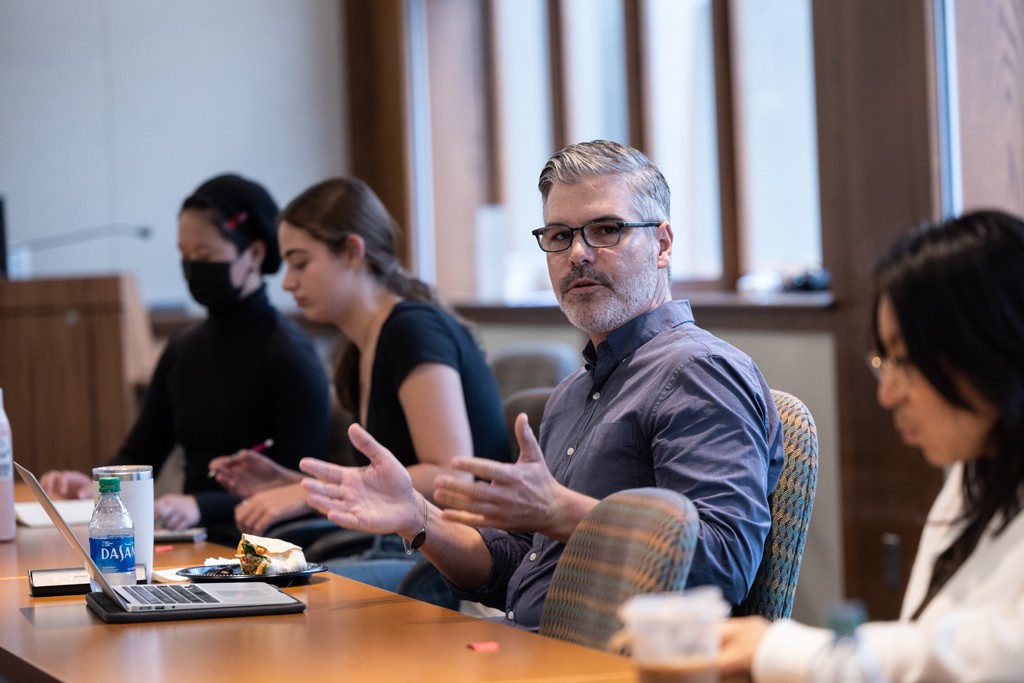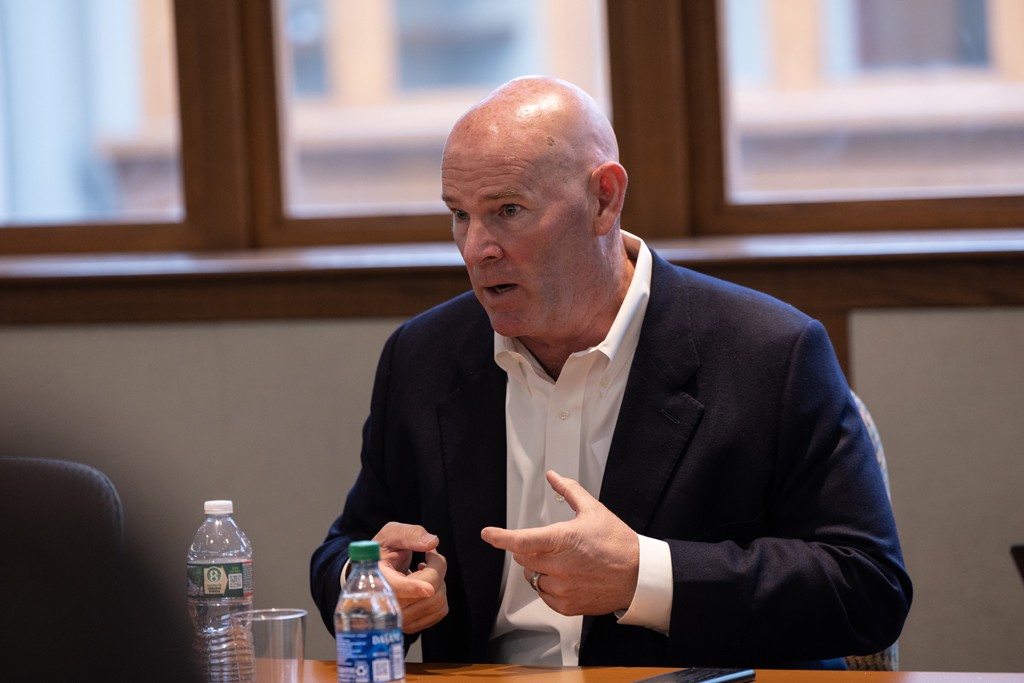I Belong
LGBTQIA+ Affirmation and Belonging
M. Scott Knox spoke about his identity as a queer man and how, over time, he found a sense of belonging. Knox grew up in Hingham, Massachusetts, and graduated from Boston College in 1996 with a B.A. in political science. He said he did not openly identify as a queer man until he was 25. Throughout high school and college, he carved a space to fit the image of a “perfect” person, doing well academically, being a member of different student organizations, and attending BC.
Knox said that during his time at BC, there weren’t a lot of resources/space for LGBTQIA+ students; the only place available was Murray House, which separates students from BC’s main campus and makes them feel othered. It wasn’t until he moved to New Orleans, Louisiana, for his role at Habitat for Humanity that he was able to explore his queer identity. However, he realized that as a white queer man, there was a lot that he had to learn since his lived experiences had been drastically different from other LGBTQIA+ people.
After he came out and understood the negative narratives around queer people, he made sure to make his identity known from the start to avoid any issues. Knox said that he would overemphasize other personal traits so that people could assign one specific characteristic to him besides his queerness. He knew there was more to him than his queer identity and wanted to normalize it in a way where it felt like something in the rearview mirror.
Initially, Knox didn’t believe in putting the pride flag on his office door because he felt he was putting it out there too much and didn’t think it was necessary. But then, he understood that if he didn’t, he was closing off potential networking opportunities with people, which was the opposite of his goal. He also put a picture of him and his partner on his desk. Doing this, he said, created an open and safe space for LGBTQIA+ people; it let them know that this was a welcoming space for them. And it combatted the misconceptions that people have of the queer community.
Knox then shifted the discussion to the queer space at BC today. Students shared that while there has been an increase in queer students’ presence on campus, it feels decentralized since there’s not one main resource center for LGBTQIA+ students.
Knox closed the conversation with some hopeful remarks. He said that whatever your identity is, queer or not, and acknowledging the layers that make us who we are, we should share if we feel comfortable. He also said that we shouldn’t worry about oversignaling or overemphasizing our identity because it will help us connect with others.
Kevin Lux Ven, Carroll School Undergraduate Program Assistant





